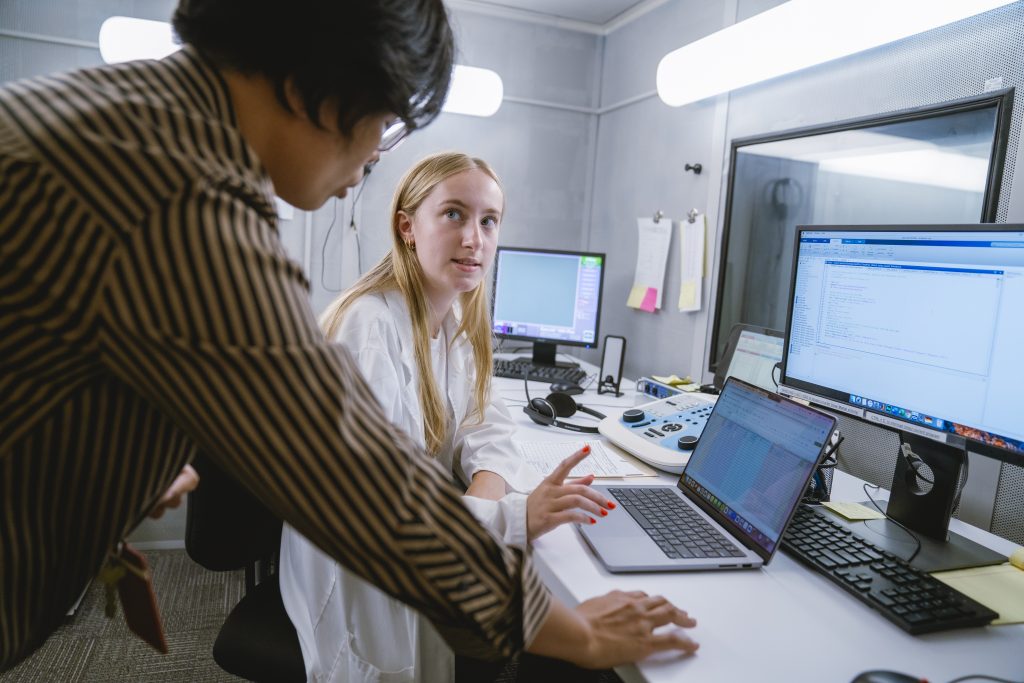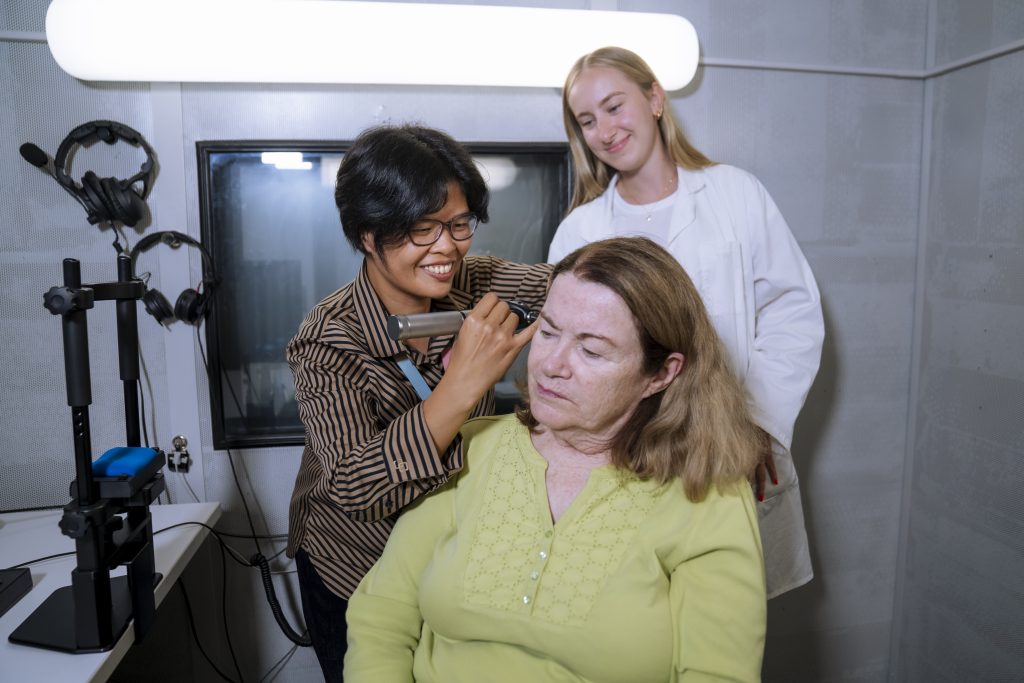
Research at the Speech Perception and Cognition Lab (SPAC Lab) is motivated by the overarching goal of improving the communication ability of older adults with age-related hearing loss. Many older adults have difficulty understanding speech in complex environments, such as in background noise or group conversations. The challenges from these conditions can be further aggravated by age-related hearing loss and cognitive changes. This speech communication problem can be detrimental to older adults’ quality of life and is associated with severe consequences including social isolation, cognitive decline, and psychological disturbance.
Using rigorous experimental methods, we study the perceptual and cognitive mechanisms that serve older adults’ speech perception under adverse conditions. To reveal this complex system, our work leverages the power of multiple behavioral, physiological, and neurophysiological measures, including eye-movement, pupillometry, heart rate, and EEG. This research provides the foundation for developing novel audiological outcome metrics and intervention technologies that can effectively reflect listeners’ experience and performance in real-life communication scenarios.
As a group of hearing researchers, we are motivated by the advancement of hearing technology in the next few decades that will change how we listen. Driven by the human-machine interface concept with an emphasis on individual listeners’ needs, future technology will be able to synthesize data from the environment and human users, with the goal of bridging across these two agents in real-time communication. We believe this must be propelled by interdisciplinary and cross-sector collaboration. Our lab is dedicated to being a part of this revolutionary synergy.

What we study in the SPAC Lab includes:
- Perceptual and cognitive mechanisms in older adults’ speech perception under adverse conditions
- Effects of prosodic cues in speech processing in complex environments
- Speech perception outcome measures that capture the real-time processing of speech in complex environments
- Influence of individuals’ language and hearing experience on prosody perception
Opportunities for Older Individuals
We are interested in working with older individuals with and without hearing loss who would like to participate in research. All of our research participants are compensated for their time and offered counseling about their auditory abilities as part of their involvement in our studies.

Support
We are grateful to have support for our work from the National Institute on Deafness and Other Communication Disorders
For information on our current research projects, please contact us at spaclab@temple.edu
